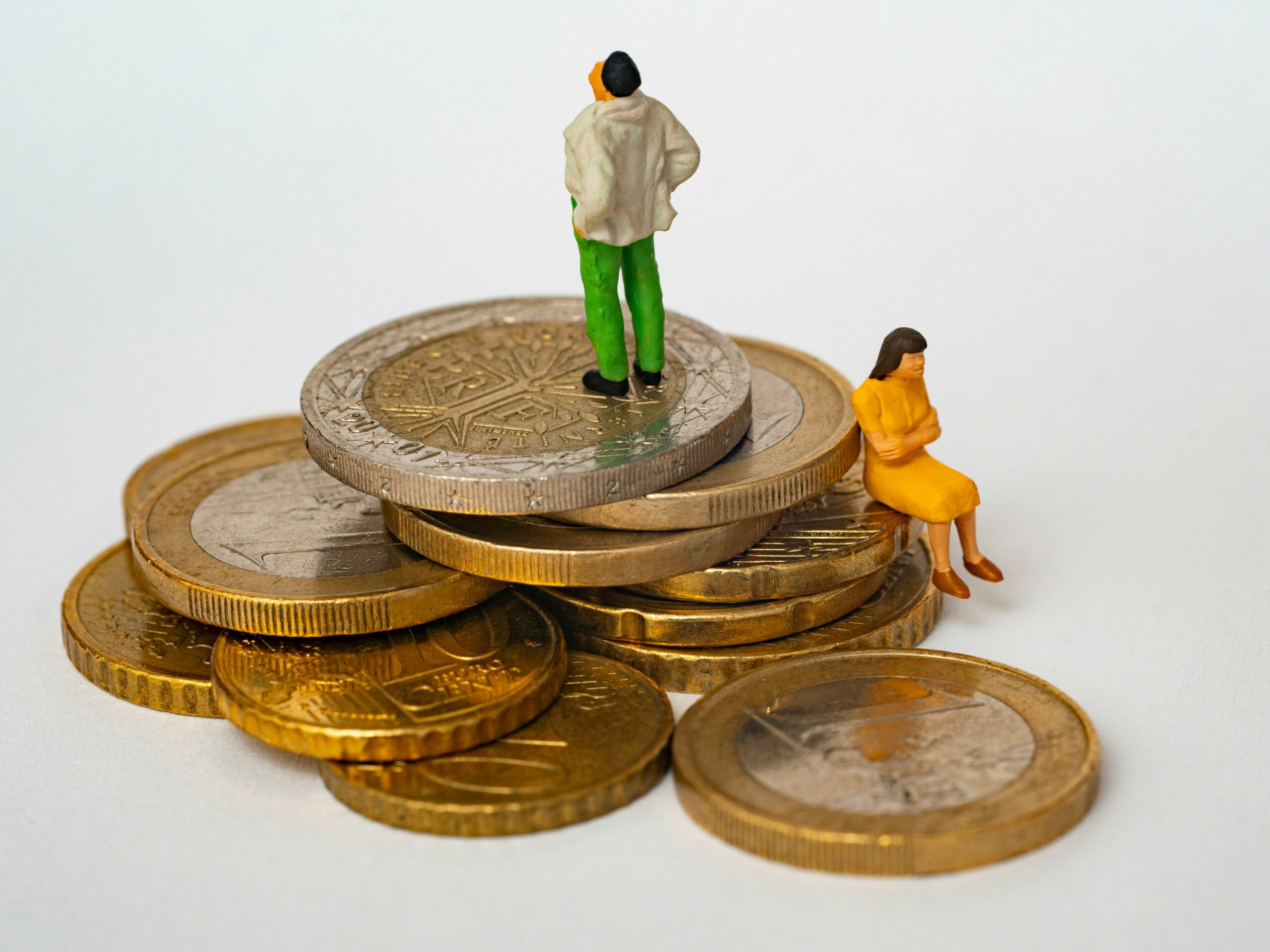
Die unfaire finanzielle Belastung, die niemand braucht.
Die unfaire finanzielle Belastung, die niemand braucht. Wir sind bei der Breite an alltäglichen und monatlichen Ausgaben in aller Regel finanziellen Schwierigkeiten ausgesetzt: Wohnen,

The Gender Pay Gap—a phrase you’ve likely come across on social media, in the news, or maybe in a chat with friends. But what does it really mean, and more importantly, why does it still matter so much?
For years, March 8th—Feminist Day of Struggle—has been a day to spotlight women’s rights. But there is another date concerning equality that needs to be remembered: Equal Pay Day. Falling in late October or early November, Equal Pay Day symbolically marks the day of the year on which women symbolically stop on average being paid compared to men. In Austria, for instance, this day fell on November 1st. This means women are effectively working „for free“ for the last two months of the year.
The Historical Roots of the Pay Gap
The fight for equal pay has a long and radical history. In the early 20th century, as women entered the workforce in greater numbers, feminists and labor organizers began to demand equal compensation for equal work. Austria saw its first major legislative attempt to address pay inequality in 1979 with the Equal Treatment Act (Gleichbehandlungsgesetz), intended to eliminate wage disparities based on gender. But progress has been slow. Over 40 years later, Austrian women are still waiting for genuine equality in their paychecks.
Why does the Gender Pay Gap persist?
If wage discrimination has been technically illegal for decades, why are we still talking about it?
One key factor is occupational segregation—the tendency for certain fields to be dominated by one gender, often with female-dominated fields being undervalued. Austrian women make up the majority of workers in education, healthcare, and social services, all critical to society yet often paid less than traditionally male-dominated fields like technology and finance. This segregation is more than a career choice; it’s rooted in societal expectations and values that have long devalued „women’s work.“
Another factor is the so called motherhood penalty. For women in Austria and around the world, becoming a mother often means a steep decline in income potential. Women who take time off to raise children may find it harder to advance their careers or re-enter the workforce, and those who stay on often face subtle biases that limit their opportunities for promotion. Men, meanwhile, tend to experience a fatherhood bonus, where they may actually see an increase in their earning potential after having children.
Systemic inequality
The Gender Pay Gap isn’t just about unequal wages; it’s a reflection of systemic inequalities that socialism and leftist movements have long worked to challenge. In a capitalist economy, roles that provide care, education, and essential services—crucial for society—are often undervalued, while jobs that generate profit for private companies are rewarded more highly. Many of these essential roles, largely occupied by women, sustain our communities but do not create monetary profits. This disparity highlights how a capitalist system tends to prioritize corporate profits over societal welfare, thereby rendering the labour of caring for others and managing households invisible and underappreciated.
Closing the Gap
In the spirit of progressive ideals, addressing the Gender Pay Gap isn’t only about women earning more; it’s about dismantling and exposing a system that inherently devalues certain types of work and limits economic independence for half the population. For us students this means to be mindful of the underlying system and to call out inequality when we are met with it. Furthermore, we need to remember that the Gender Pay Gap is not just a women’s issue—it’s a question of what kind of society we want to live in. A more equitable society will recognize and reward all work fairly, redistribute economic power, and ensure that every person has the opportunity to achieve financial independence.
Real progress demands solidarity: men standing alongside women, students holding institutions accountable, and a public unwilling to tolerate inequality any longer.

Geschäftsführung VSStÖ Linz

Die unfaire finanzielle Belastung, die niemand braucht. Wir sind bei der Breite an alltäglichen und monatlichen Ausgaben in aller Regel finanziellen Schwierigkeiten ausgesetzt: Wohnen,

Mehr Burschenschafter als Frauen Für die FPÖ sitzen im neu gewählten Nationalrat mehr Burschenschafter als Frauen*, laut einer Statistik der Nachrichten- und Medienseite www.kontrast.at.

Gender Studies als Lehrveranstaltung Überflüssige Pflicht? „Warum müssen wir DEN Kurs denn belegen?“ – diesen Satz hörte ich vor kurzem in der Straßenbahn, als sich

The Gender Pay Gap Unequal Earnings, Unfinished Business The Gender Pay Gap—a phrase you’ve likely come across on social media, in the news, or maybe

16 Tage gegen Patriarchale Gewalt Was sind die 16 Tage? Die 16 Tage gegen patriarchale Gewalt finden jährlich vom 25. November bis zum 10.